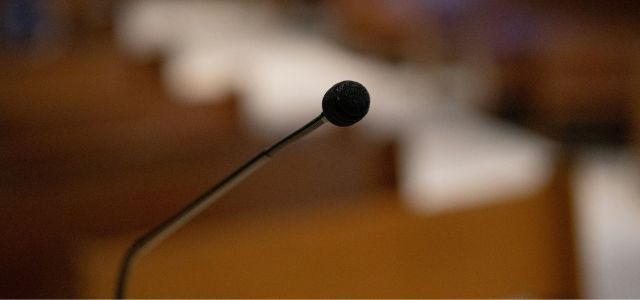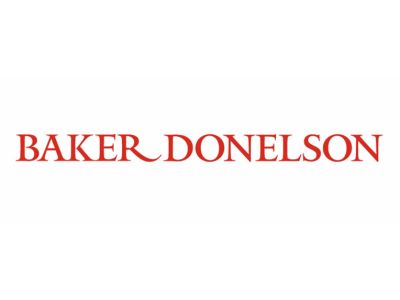The USPTO Director’s recent reversal of a Patent Trial and Appeal Board (PTAB) Final Written Decision in Interactive Communications International, Inc. v. Blackhawk Network Inc., IPR2024-00465, signals heightened scrutiny of expert testimony reliability in inter partes review (IPR) proceedings. This October 2025 decision underscores the critical importance of consistent expert testimony and may reshape how practitioners approach expert witness preparation and cross-examination strategies in PTAB proceedings.
The PTAB’s initial finding
The Board initially found all challenged claims of US Patent No. 11,488,451 B2 unpatentable as obvious based on combinations involving the Szrek and Llach references. Central to this determination was testimony from Petitioner’s expert, Michael Hutton, regarding the motivation to combine these references. Despite acknowledging credibility concerns with portions of Hutton’s testimony—specifically noting that his explanation for combining Szrek and Llach “is not credible”—the Board nevertheless relied on his testimony to support its obviousness finding.
This selective crediting of expert testimony, in which the Board acknowledged credibility issues yet still relied on the witness’s conclusions, laid the foundation for the successful Director Review petition. The Board’s willingness to parse contradictory testimony and credit only certain portions proved to be its downfall.
The Director’s intervention
Under Secretary John A. Squires exercised his Director Review authority to reverse the Board’s decision in its entirety, finding that the Board abused its discretion by improperly crediting materially contradictory expert testimony. The Director’s analysis focused on specific inconsistencies in Hutton’s deposition testimony regarding how a person of ordinary skill would modify Szrek’s disclosures to incorporate Llach’s transaction computer.
The critical contradiction emerged during cross-examination when Hutton initially testified that Exhibit 2050—a modified version of Szrek’s Figure 2 incorporating Llach’s transaction computer—did not represent the modification described in his declaration. He later reversed this position, claiming it did represent his proposal. This flip-flopping on a central technical issue proved fatal to Petitioner’s case.
The Director cited Federal Circuit precedent from Finesse Wireless LLC v. AT&T Mobility LLC (2025) for the proposition that when a party bearing the burden of proof rests its case on self-contradictory expert testimony, the evidence may be deemed insufficient to satisfy that burden. This application of Federal Circuit law demonstrates the Director’s commitment to maintaining evidentiary standards consistent with Article III practice.
Broader implications for PTAB practice
Perhaps most significantly, the Director extended his credibility finding beyond the specific Szrek-Llach combination to terminate the entire proceeding, including grounds the Board had not reached. Citing N.L.R.B. v. Pittsburgh S.S. Co., the Director concluded that testimony found unreliable on one issue may properly be accorded little weight on other issues. This wholesale rejection of an expert’s testimony on the basis of specific contradictions represents an aggressive application of credibility principles.
This decision has immediate practical implications for PTAB practitioners. Patent owners should scrutinize the Petitioner’s expert testimony for any inconsistencies, particularly between declarations and deposition testimony. Even seemingly minor contradictions on technical details can now potentially undermine an entire petition if those details are material to the obviousness analysis.
For petitioners, this decision emphasizes the critical need for thorough expert witness preparation. Experts must maintain absolute consistency between their written declarations and deposition testimony. Any evolution in their opinions or explanations must be carefully justified and documented. The days of relying on the Board to parse through contradictory testimony and credit favorable portions appear to be over.
Strategic considerations going forward
The decision also highlights the strategic value of Director Review as a procedural tool. Patent owners facing adverse Final Written Decisions should carefully evaluate whether expert credibility issues might support a Director Review request. The Director’s willingness to reverse based on expert testimony problems—even when the Board acknowledged but overlooked those problems—suggests this avenue may be particularly fruitful.
Furthermore, the decision’s termination of the entire proceeding rather than remand for further consideration sends a strong message about the consequences of relying on compromised expert testimony. This all-or-nothing approach may encourage petitioners to consider submitting supplemental expert declarations when inconsistencies arise during prosecution, rather than hoping the Board will overlook them.
Conclusion
The Interactive Communications Director Review decision represents a significant development in PTAB jurisprudence regarding expert testimony standards. By reversing a Final Written Decision based on expert credibility issues and terminating proceedings entirely, the Director has raised the bar for the reliability of expert testimony in inter partes review proceedings. Practitioners must now ensure their experts maintain unwavering consistency throughout proceedings or risk losing not just individual grounds, but their entire case.

Written by Ed Lanquist
Shareholder, Registered Patent Attorney, Mediator, Baker Donelson
You may also like…
The quiet power of confidentiality clubs in SEP litigation
In standard essential patent (SEP) disputes, especially those involving FRAND (Fair, Reasonable, and...
A $10 million patent win reduced to a $1 lesson in damages
In a decision that will resonate as a stark warning to patent litigants, the US Court of Appeals for the Federal...
Chevron’s ghost and the return of deference
Chevron U.S.A. Inc. v. Natural Resources Defense Council, 467 US 837 (1984) instructed courts to defer to an agency’s...
Contact us to write for out Newsletter














